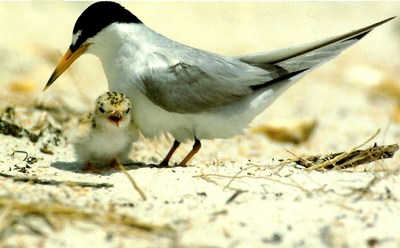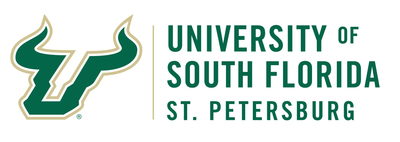Subject: ENI
Tiny Campus Guests Inspire Huge Conservation Effort
ST. PETERSBURG, Fla., Feb. 22, 2018 /PRNewswire-USNewswire/ -- The Nelson Poynter Memorial Library needed a new roof last year. When the construction team discovered guests on the rooftop, however, the project came to a screeching halt. The tiny guests were a colony of around 65 beach nesting birds, called Least Terns.

Working with the St. Petersburg Audubon Society, Florida Fish and Wildlife Commission (FWC) and architects and consultants, USF St. Petersburg has installed a new roof that incorporates an artificial habitat for the colony of nesting Least Terns, a threatened Florida species. The goal of the artificial habitat is to ensure when the birds return to Florida this spring to breed, they will continue to nest on the Poynter Library rooftop.
"When I first learned about the terns, I thought why can't we leave them in peace? We have taken away their accommodation [the beach] and we should give something back to accommodate them," said Ed Lewis, Construction Project Manager at USF St. Petersburg.
The installation of the new library roof was suspended for eight months to ensure the terns were not interrupted during the 2017 breeding season. When construction finally began last fall, plans were in place to create an artificial nesting habitat that is similar to the tar and gravel texture the terns are attracted to on rooftops. The space is over 1,000 square feet, the minimum size recommended by FWC and Audubon Florida, and is situated in the southwest corner of the roof.
"This is the first instance of a building owner choosing to create a habitat for the terns that I am aware of in the Tampa Bay area," said Jeff Liechty, Rooftop Nesting Coordinator with Audubon Florida. "What USF St. Petersburg is doing is unique and forward thinking."
Adult Least Terns are generally 22-24 cm long, with a wingspan of 20 inches and weigh about 1.5 ounces. Most of their feathers are white, with grey wings and a black cap on their head. Their yellowish-orange beaks match their feet. These migratory seabirds are a threatened species because of the loss of suitable breeding habitat.
"In Florida, humans are encroaching on their breeding habitat and when the birds do nest on beaches they are often unsuccessful because of disturbance from humans or animals," Liechty said. "Florida rooftops have become surrogate habitats for them. The gravel is sort of like sand, it's nice and open, they can see predators coming from far away and it's just quieter than the beaches."
The terns tend to choose rooftops close to water for access to fishing and cooling themselves. The adult birds scratch out a small groove in the gravel and lay their eggs. When the heat of the roof becomes too much, the adults dive into nearby water to wet their feathers and return to their nests to cool the eggs or small chicks.
Liechty and a team of volunteers monitor over 100 rooftops in the Tampa Bay area that have become nesting sites ? with Pinellas County being the most densely populated in the state.
Records show that Least Terns have chosen USF St Petersburg's Poynter Library rooftop as their alternative nesting habitat since 1998. For nearly 20 years, if not longer, these tiny birds have come back to campus, most every spring, to nest and raise their fledglings.
"This species has already been pushed off its natural breeding habitat and this phase-out of tar and gravel rooftops is an additional threat to their artificial breeding habitat," said Liechty, who was contacted to provide monitoring of the roofing project during the terns breeding season last year and, along with volunteer Stephanie Cain with Blue Turtle Green Bird Society, will continue to monitor the terns activity.
"USFSP decided to be wonderful environmental stewards," Liechty added. "This is an institution saying, 'this is something that we care about, it is important and we are going to go out of our way to continue to provide a habitat for these terns.'"
The Poynter Library staff has also been remarkable, Liechty said. "When we came and explained that there are these terns nesting on the rooftop, they took it as a badge of honor. This is the sort of stewardship that we need more of."
The terns should be arriving back from their wintering grounds in the Caribbean, Mexico and South America by the middle of March and typically start breeding by middle of April. Breeding can last into September, and by November they migrate south again for the winter months.
"I think we have done as much as we can to accommodate them and I've got my fingers crossed that they will come back," Lewis said.
"This project represents both an effective conservation effort, as well as an opportunity to incorporate these imperiled species into future academic studies and student research projects," Brendan O' Connor said, Southwest Regional Volunteer Coordinator with FWC.
USF St. Petersburg and partners will know if the new roof with the artificial habitat is successful when they see returning adult terns circling around the library roof, and diving into Bayboro Harbor collecting fish in their beaks to feed their fledglings.
CONTACT: Matthew Cimitile, 727-873-4840, [email protected]

SOURCE University of South Florida St. Petersburg
These press releases may also interest you
|
News published on and distributed by:



